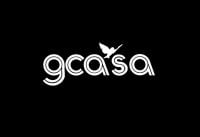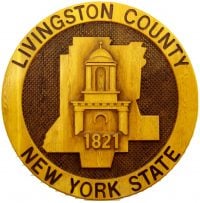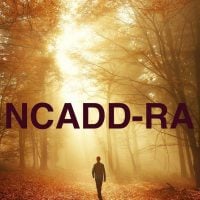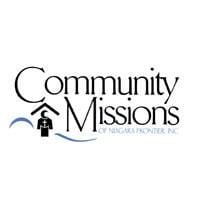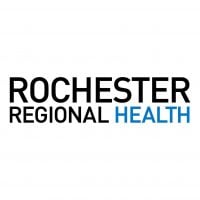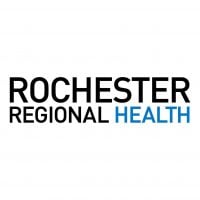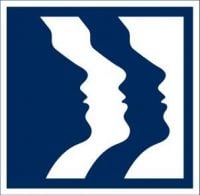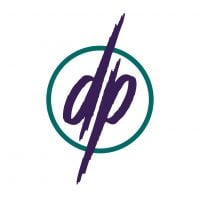GCASA
Drug Rehab Center in Batavia, New York
GCASA is a professional organization in Batavia, NY, that offers evidence-based and individualized treatment plans for alcohol and opioid addiction, including detox, inpatient, outpatient, and aftercare support, utilizing various therapies such as CBT, DBT, family therapy, trauma therapy, and nutrition therapy, and is state licensed, accredited, and accepts private health insurance.
About This New York Facility
GCASA, located in Batavia, NY, is a professional organization with over 40 years of experience treating alcohol and opioid addiction. The clinic focuses on providing in-depth treatment plans on an individualized basis, to ensure that all of their clients reach and maintain a happy and healthy state of recovery. They provide a full range of care, including detox, inpatient, aftercare support, outpatient, and sober-living/half-way programs.
Using evidence-based treatment methods, their team of experts provide a tailored system of care to the unique needs of each person. This includes Cognitive Behavioral Therapy (CBT), Dialectical Behavioral Therapy (DBT), family therapy, group therapy, trauma therapy, couples therapy, individual therapy, and nutrition therapy. Their facility is state licensed, accredited, and accept private health insurance. They prioritize a comprehensive, whole-person approach, so their clients can finally break the cycle of addiction and reclaim their lives.
Genders
Ages
Modality
Additional
Accreditations
State License
Conditions and Issues Treated
Opioid Addiction Treatment supports people recovering from addiction to prescription drugs as well as illegal opioids. This is a hospital-based or residential treatment. Depending upon one’s age, detox without the appropriate medication may be unpleasant or even dangerous–some get body aches, fever, chills, while others may even have seizures.
Opioid treatment involves medically assisted detox, physical and mental support. Most rehabilitations use an array of treatments to ensure overall wellbeing, such as Medication-assisted therapy (MAT) in which one gets behavioral therapy, medicines, and counseling. A client-centered approach can reduce one’s chances of relapse. Therapists at work with the client to figure out environmental and behavioral triggers, giving them the power to change the patterns.
Levels of Care Offered at GCASA
This center offers a variety of custom treatment tailored to individual recovery. Currently available are Aftercare Support, Detox, Inpatient, Outpatient, Sober-Living / Half-Way, with additional therapies available as listed below.
Detoxification is a reduction in the effects of drugs and alcohol. It can be beneficial for people who have a history of withdrawal, who are at risk for dangerous health concerns, or who are unable to function well in their day-to-day lives due to addiction.
Detoxification is beneficial for:
- People who are unable to overcome addiction without the help of professional care.
- People who are at risk for dangerous health conditions due to withdrawal.
- People who are at risk for overdose or serious health concerns after a relapse.
If you believe that addiction treatment is right for you or a loved one, you can contact your primary care physician, or search for addiction treatment centers in your area. Treatment is beneficial to people who are motivated towards recovery, and who understand the benefits of professional care.
An inpatient is a person who stays in a hospital or rehab center during treatment. For alcohol- and drug-dependent individuals, inpatient rehabs provide individualized around-the-clock services. Inpatient treatment programs address a person’s unique physical, medical, and psychological needs. A team of experts assess the severity of the addiction and design a highly tailored program. typically, the length of stay in an inpatient facility in Batavia, NY is 30 days. Those with severe addiction may need to stay at the facility for 60 to 90 days.
Outpatient rehabilitation is a treatment that exists if a patient is not checking into GCASA long term. In addition to helping them recover, the patient attends regular therapy sessions and detox and participates in other therapies. However, this is all primarily done from home. As a follow-up to inpatient treatment, outpatient treatment is usually recommended.
After rehabilitation, it helps people return to their everyday lives. It may also be an alternative to inpatient care in some situations. If they cannot leave their jobs, children, or don’t have the money for inpatient care, people can choose this method. Inpatient therapy, however, is the best method and most suggested level of treatment offered by GCASA in recovering from addiction.
A sober living home in Batavia, NY, also known as an SLH, is much like a halfway house. It is halfway between a drug or alcohol treatment facility and living at home. There are some specific rules and regulations residents must follow, like attending mandatory meetings, and household chore-type activities.
Treatment for substance abuse does not cease after an individual successfully completes a detox or rehabilitation program. A vital follow-up treatment service is aftercare support provided to individuals at GCASA in New York after they attain initial sobriety.
Aftercare support often takes the following forms: 12-Step Programs, Outpatient Treatment Programs, and Support Groups. The most effective aftercare programs are tailored to meet an individual’s specific needs and circumstances.
Therapies & Programs
Individual therapy involves one on one sessions between the patient and the therapist at GCASA. Individual therapy provides patients with a safe environment where they can openly discuss their problems with the therapist. The patients find the therapist as a person who they can trust. It helps them to open up and discuss personal and sensitive issues, which they may not be comfortable discussing in a group setting.
Individual therapy aims to identify the core issues that would have led the patient to substance abuse and address the root cause effectively. The therapist can develop patient-specific customized solutions through individual therapy, which aids speedier recovery.
Addiction and alcoholism always harm an addict’s relationships with others and none more than relationships with a spouse or partner. Couples therapy is an essential part of restoring trust and good communication to intimate relationships harmed by addiction. Couples therapy by GCASA helps repair the damage done to these important relationships.
Recovery can be more effective if the entire family’s involved. Family therapy hosted by GCASA brings in the addict’s family to explore genetic factors. It gives loved ones the tools for dealing with addiction and its underlying mental issues. It is a recommended step in helping addicts adapt to sober living.
Trauma is one of the most common causes of psychological disorders. It’s often found in people with addiction diagnoses. Trauma therapy addresses this by examining the emotions and thoughts people have formed due to past traumas. Traumas are complex but trauma therapy can reduce their ability to contribute to addictive behaviors.
Dialectical Behavioral Therapy is a form of Cognitive Behavioral Therapy. It is designed for those who are prone to self-harm and suicidal behaviors. GCASA aims to help patients understand the relationship between their thoughts, feeling and behaviors and it gives them the tools to make a change. It is effective for those whose addictions and behaviors stem from extreme mental health issues.
The right diet can improve a person’s general outlook, sleep habits and thought processing skills. MNT also lowers the occurrence of chronic diseases such as adult-onset diabetes. Dieticians like those at GCASA in Batavia, NY believe that nutrition therapy is the key to making significant lifestyle changes.
Nicotine Replacement Therapy (NRT) uses low dose nicotine products to ween smokers away from cigarettes. The products get nicotine into the bloodstream without smoking reducing addiction to the physical habit. It also allows addicts to adjust to lower doses to reduce withdrawal symptoms.
Payment Options Accepted
For specific insurance or payment methods please contact us.
Is your insurance accepted?
Ask an expert, call (888) 674-0062
Additional Details
Specifics, location, and helpful extra information.
Batavia, New York 14020 Phone Number(585) 343-1124 Meta DetailsUpdated November 25, 2023
Staff Verified
Patient Reviews
There are no reviews yet. Be the first one to write one.
Batavia, New York Addiction Information
More than 2 million New Yorkers are currently suffering from some type of substance abuse and many of those are minors. Alcohol abuse, in particular, is prevalent among those underage. As a result of the high prices and regulation of prescription drugs, many New Yorkers turn to heroin instead. This has led to a serious heroin epidemic in the state.
The drug and alcohol addiction and abuse problems in Batavia are widespread. According to a survey, a shocking percentage of 12.71% of city residents reported using illicit drugs in the past 30 days. In addition, 14.03% of residents reported driving under the influence of illicit drugs or alcohol in the past year. The most common types of treatment provided in Batavia are inpatient rehab, outpatient rehab, and 12-step programs.
Treatment in Nearby Cities
- Peekskill, NY (247.9 mi.)
- Haverstraw, NY (249.2 mi.)
- Albion, NY (17.4 mi.)
- Farmington, NY (43.7 mi.)
- North Collins, NY (47.8 mi.)
Centers near GCASA
The facility name, logo and brand are the property and registered trademarks of GCASA, and are being used for identification and informational purposes only. Use of these names, logos and brands shall not imply endorsement. RehabNow.org is not affiliated with or sponsored by GCASA.


